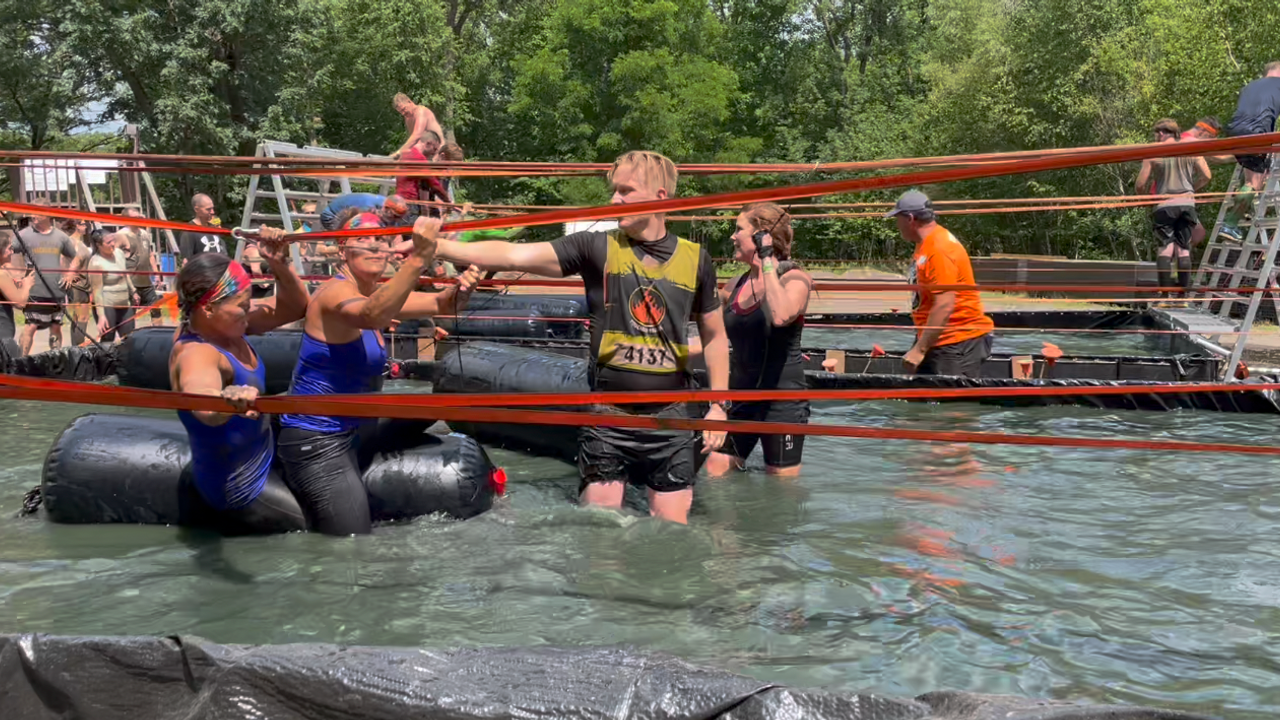Creating a Culture of Teamwork - Lessons from the Tough Mudder

Almost four years ago to the day, I was hit by a pickup truck. It took four months to learn how to walk again without assistance, and another three years of physical therapy to undo more of the lingering damage caused by the accident.
So it meant a great deal to me to compete in the Tough Mudder 10-Mile Classic event last weekend. It’s a mud-soaked strength and endurance marathon that pushes you through mental and physical walls – or makes you jump over, swim through, or climb under them.
One of the biggest walls for me to get over was that I was running the course solo. It started out as a threesome, but my companions dropped out before race day. The 10-mile stretch had its moments of exhaustion and weakness-of-willpower, and a few of those obstacles laid me out flat after losing my grip on a rope or muddy wall. But I powered through and finished within a respectable time frame. Truly, it was an achievement for me.
I won’t lie, I could barely move my body the following day – and my limbs are full of scrapes and bruises that were all well-earned.
But you know what I really took away from this whole event…?
The importance of teamwork and fellowship amongst the Mudders. I may have been a solo runner, but I arrived at the finish line with a whole team. Each runner viewed the other as a team member, and their success was your mission.
Of the many walls I had to climb up or over, there were a few that were particularly challenging to me because they were either too high or too slick with mud. And sadly, I don’t have the upper body strength or grip strength required for some of these obstacles. If I failed in my initial attempts, I’d hear a fellow Mudder ask if I needed a hand or push to get over. With a little extra help, I sailed over those walls. And then I’d turn around and offer a hand to someone behind me before darting off to the next obstacle.
So, you may be wondering, what does this have to do with executive coaching?
Well, it ties nicely into the topic of creating a culture of teamwork in the office.
We could also call it a culture of fellowship.
As a leader, cultivating a culture of teamwork is essential. The more comfortable your people are around one another, the more confident they’ll feel brainstorming, voicing opinions, and going along with new ideas. This level of fellowship is vital when the team needs to pivot or embrace change, to create, and to innovate. And when people see the successes of working together in this way, team morale and productivity soars.
So, I’d like to leave you with a few strategies to help you create a phenomenal culture of fellowship. It’s a combination of Tough Mudder-isms and research-backed science. Put them into practice and you’ll be surrounded with a remarkable team:
- Encourage team members to share information. According to an article by UC Berkely, you should emphasize the importance of each team member’s contribution and demonstrate how all of their jobs operate together to move the entire team closer to its goal.
- Delegate problem-solving tasks to the team and let the team work on creative solutions together. There’s more than one way to get over that wall.
- Establish team values and goals. Be sure to talk with your team about the progress they’re making toward established goals so that employees get a sense of both the successes and of the obstacles that lie ahead.
- Make sure that you have a clear idea of what you and your team need to accomplish, that you have established clear time frames; and that your team members understand their responsibilities.
- When your colleagues offer different opinions from yours, factor their insights and perspectives into your decision-making. (Like when the guy behind you tells you to run through the wall, not at the wall, know that his suggestion comes from experience that is greater than yours.)
- Encourage brainstorming and listening. Because, when you encourage debate, you will inspire creativity.
Polly Meyer can help your senior leaders develop the key behaviors, executive presence, and communication skills that are required in today's global business climate.
Science-backed, assessment-driven coaching can establish foundational building blocks to ignite and accelerate transformation in your leaders.
Located in Minneapolis, coaching and training sessions can be in person or conducted virtually.
To learn more about executive coaching, contact Polly Meyer at polly@pollymeyer.com. Or visit the website at www.pollymeyer.com.

